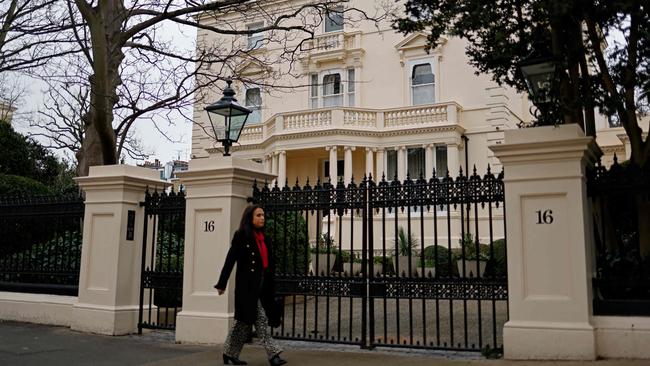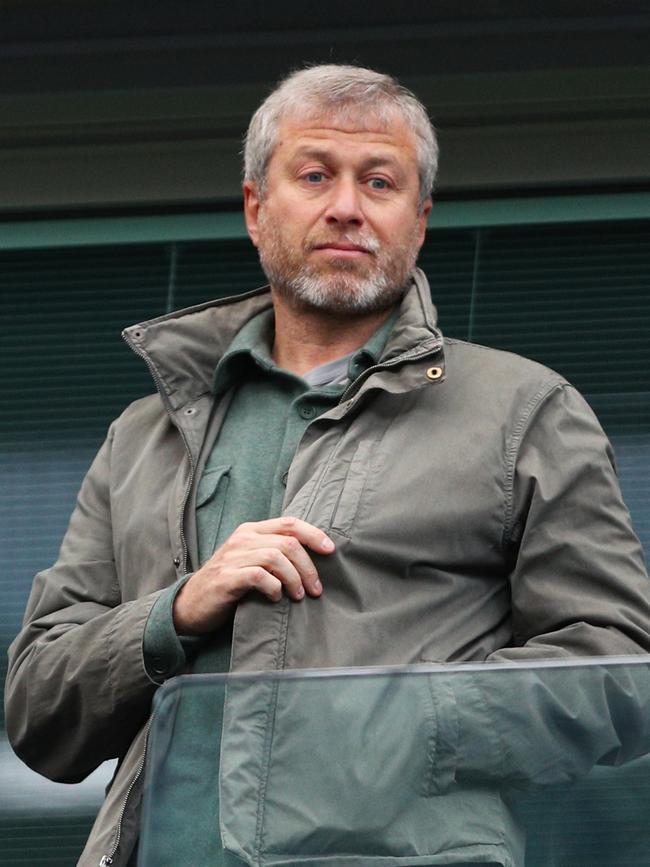Russian oligarchs not alone in washing dirty money in West

He told me that he collected money from nominated bank accounts and had to invest it internationally. The only requirement was for him to make a 15 per cent annual return. He did not know whose money it was, but it was no doubt suspiciously acquired, and probably hazardous for him if he lost the money.
The UN estimates the amount of money laundered globally in one year is 2-5 per cent of global GDP. Popular destinations for placing dirty money are London, New York, the UAE and Singapore.
Some of the most expensive parts of London have few inhabitants because properties there are owned by British-registered companies owned by offshore shell companies. The shell companies are based in places like the British Virgin Islands, Seychelles and Panama, and are owned by anonymous wealthy individuals.
I’ve had some personal knowledge of questionable money placements. On a visit to Yorkshire in the early 2000s, a real estate agent told me that all of her multimillion-pound properties were being bought sight unseen by Russian investors.
In 2009, I was interested in buying an investment house in Sacramento, the capital of California. The realtor told me I would have to get in line because she was filling an order from an offshore Chinese businessman for 100 houses. (There is no restriction on foreign nationals buying US real estate; in 2021 US property sales to foreign buyers totalled $73.5bn.)
The reality is that most Western politicians don’t see questionably acquired money invested in their countries as a problem requiring political or law enforcement action – unless, of course, it’s linked to terrorism. Generally, politicians regard money coming in as beneficial to the economy.

Australia seems less popular for parking suspiciously acquired money, not because of our enforcement activities, but because it’s a smaller and more remote market. Most of the dirty money in Australia seems to come from the Pacific area – including PNG, China and organised crime. It’s conservatively estimated that $2bn to $3bn a year is laundered through Australia. The most popular investment is real estate.
You can get an idea of how much real estate in Australia is unoccupied – and possibly corruptly owned – by whether the lights go on at night. In Sydney and the Gold Coast, particularly Main Beach, many of the expensive apartments in waterfront buildings seem to be permanently unoccupied.
Banks are sometimes complicit in the money-laundering process. In the case of London, reputable investigative reporter Oliver Bullough claims that banks there launder $178bn worth of dirty money every year. He singles out two very high-profile banks for laundering oligarch and drug cartel money.
If banks get caught out, the penalties are minor compared with the profits generated.
Most people are aware of Russian oligarchs, but an oligarch is by definition a member of a small, ultra-wealthy group holding power in any nation. Other countries with oligarchs include China, Nigeria, North Korea, Saudi Arabia, Turkey, Ukraine, Venezuela and Zimbabwe.
In Russia, the dissolution of the Soviet Union during 1988-91 enabled a small group of well-placed individuals (mostly bankers and KGB officers) to gain controlling interest of many of the country’s most valuable resources and utilities – such as oilfields. Many oligarchs also took out generous loans from Russian banks, bought shares and then took out loans from Western banks against the value of the shares.
When former KGB officer Vladimir Putin came to power in 1999, the process of passing the nation’s wealth to oligarch cronies continued via lucrative state contracts.
Most oligarch money is invested in Western countries where oligarchs can afford the best legal and financial advice to protect themselves and their money. This makes any official investigation difficult and resource-consuming for underfunded government agencies. Oligarchs are also able to litigate against media organisations and investigative journalists to stop them from investigating and publicising their findings.
Putin’s war in Ukraine has led to a range of Western punitive actions against Russian oligarchs, particularly targeting those close to Putin. The assumption being that they can put pressure on Putin to withdraw from Ukraine.
Prominent billionaire oligarchs of the Putin era include Alexander Abramov, Roman Abramovich, Vagit Alekperov, Petr Aven, Sergey Chemezov, Oleg Deripaska, Mikhail Fridman, German Khan, Vitaly Malkin, Leonid Mikhelson, Alexei Mordashov, Vladimir Potanin, Yevgeniy Prigozhin, Mikhail Prokhorov, the Rotenbergs, Dmitry Rybolovlev, Igor Shuvalov, Nikolai Tokarev, Alisher Usmanov and Viktor Vekselberg.
The US has sanctioned Abramovich, Aven, Chemezov, Fridman, Mikhelson, Mordashov, Potanin, Prigozhin, the Rotenbergs, Shuvalov, Tokarev and Usmanov. The UK has been dragging its feet, citing legal complications.
Money laundering and placement are facilitated by corruption. Transparency International says that 131 countries (of 180) have made no significant progress against corruption in the past decade – despite making commitments to do so. Its 2021 corruption index had in equal first place for very low corruption: New Zealand, Finland and Denmark. Some of the other rankings were UK 11th, Australia 18th (down from eighth in 2010), UAE 24th, US 27th, Ukraine 122nd (be very wary who you donate money to), and Russia 136th.
Clive Williams is a Visiting Fellow at the Australian National University’s Strategic and Defence Studies Centre.





When I was travelling overseas for Defence, we always travelled business class. On one cross-Pacific trip I was sitting next to an English accountant, probably in his 30s. As you do, we talked on and off during the flight. I never thought that being an accountant could be exciting or dangerous, but his job undoubtedly was.